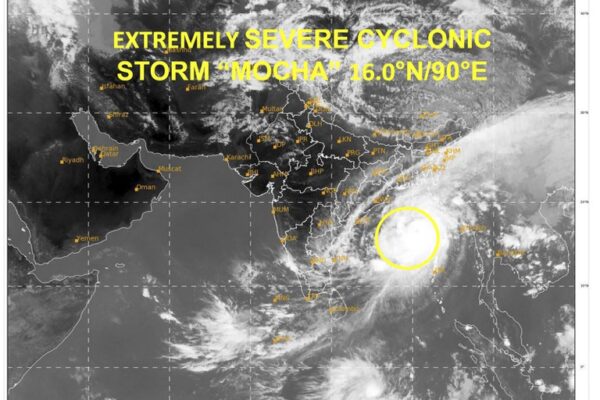
Remembering late Tibetan film director Pema Tseden’s ‘weighty’ life
Pema Tseden, the renowned Tibetan director, died of a heart attack on May 8th, and many hearts worldwide are broken. As a professor of Chinese politics (and Tibet) at Cornell University I have shared his films with my students, and when I informed the current ones of this news they too were pained by his passing. To better understand why Pema Tseden’s death is so significant one can, fittingly, turn to one of his most important films, Tharlo. The first thing one sees in the remarkable 2015 movie as the opening credits fade is a lamb being fed as it sits comfortably in a bag. The camera slowly pans out to reveal that the film’s titular character, Tharlo, is nourishing the lamb. The herder is in a small rural police station, standing across from an officer, both men are Tibetan, but their lives are quite different. The officer has been integrated into the People’s Republic of China, Tharlo has not. The impetus for their meeting is this liminal status, as he does not even have an “residence identity card”, a foundation of citizenship in the PRC. And yet, for the first few moments of this scene, the two men are not discussing the steps Tharlo must take to rectify this shortcoming. Instead, the herder is reciting, from memory (and in a lyrical style redolent of the way many Tibetans chant Buddhist mantras and prayers) Mao Zedong’s highly influential 1944 speech known as “Serve the People”. The central question in the Chinese leader’s talk is what constitutes a life well lived. More specifically, Mao asks (channeling the renowned Chinese historian, Si Maqian, what determines if a death is “weightier” than Mount Tai, or “lighter than a feather”. The answer in the speech, and pondered throughout the film by Tharlo, is that if an individual has “served the people” his death will have true heft (and the life before it meaning). The true weight of Pema Tseden’s death does not simply stem from his promotion of Tibetan art and culture. This is as despite how prolific the Tibetan director was, and as glowing as its critical reception, it would be hyperbole to assert his work is universally known and beloved. It alone did not have the weight of a mountain. What does is his unceasing effort to write fiction and make movies inside the PRC. And to do so during a period in which Beijing has ruled Tibet with an increasingly heavy hand, and the divide between the Tibetans and Chinese has yawned particularly wide. This is not to assert that Pema Tseden was able to bridge such the gap between the two sides. On the contrary, all indications are that such a task is well beyond the reach of anyone. But it is to call attention to the Tibetan director’s efforts to operate in such a perilous in-between space. To stand then not as a conduit for solving the Tibet-China conflict, but rather to persist and even flourish artistically in the most contested of spaces. Operating there may not have endeared Pema Tseden to everyone, but it does constitute “serving of the people”. Given the harm Mao caused to Tibet through making sure it became a part of the PRC, there is an admittedly bitter irony in framing the Tibetan director’s significance using his words. But this is an irony that Pema Tseden himself implicitly acknowledged in Tharlo. The main character’s recall of the speech not only opened the film, but his inability to recite it again during his haunting return to the police station comprised the next to last scene in the movie. Tibetan filmmaker Pema Tseden sits in the Beijing Film Academy theater in Beijing before a screening of his film “Tharlo,” Nov. 12, 2015. Credit: AFP The Tibetan director then did not serve Mao’s imagined proletariat, but rather the Tibetan people (in all their various stations). He gave voice to their lived experience. He shed light on the complex moral dilemmas they faced in a society that has been shaken not only by the Chinese state, but also through the economic forces of modernization and globalization. He illuminated how mundane aspects of their everyday lives were laden with meaning and often fraught with wide-ranging consequences. The situation inside China today, though, is quite bleak. Under the leadership of Xi Jinping the country has turned in the direction of a sharper brand of authoritarianism than was practiced by his immediate predecessors at the helm of the Chinese state. And the chill this has caused within China has been felt more acutely in Tibetan regions within the country as policies in such places have tilted more and more toward assimilation (rather than autonomy). As a result, there are very few Tibetans left who will be able to replicate what Pema Tseden accomplished in his lifetime. The space for this has been so sharply curtailed, and the risks of doing so have grown. The death of the Tibetan director is then surely weightier not only than Taishan, but more aptly Mt. Everest. When someone dies in Tibet people tend not to say “sorry for your loss” to the bereaved, but rather “may your heart be mended”. This sentiment is particularly warranted in response to the Tibetan director’s untimely passing. Allen Carlson is an associate professor in Cornell University’s Government Department and serves as director of the school’s China and Asia Pacific Studies program. The views in this article are his own and do not reflect the position of Cornell University or Radio Free Asia.




